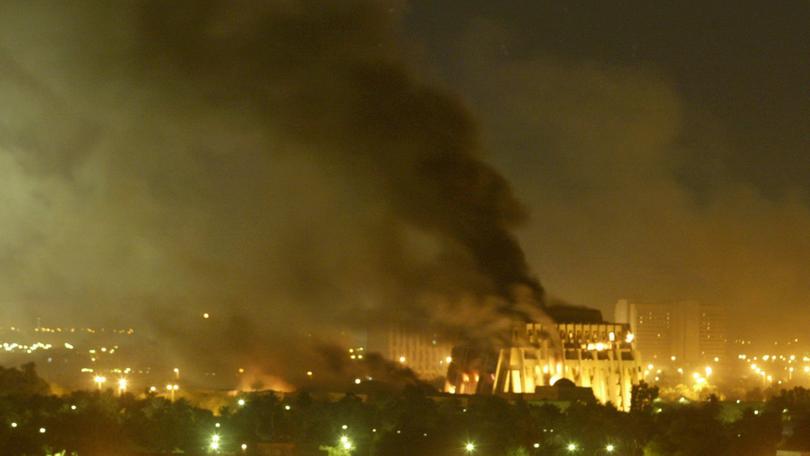Review finds administrative error to blame for missing cabinet papers, including documents on Australia’s Iraq involvement
The cabinet documents were due to be released to the public on January 1 but it was revealed 78 documents were not handed over. A review has found out why.

Cabinet documents relating to Australia’s involvement in the Iraq War were not handed over to the National Archives due to “administrative error” and “internal systemic issues”, a review has found.
The review into the failure of the former coalition government to provide dozens of documents from 2003 on the decision to enter the Iraq War to the archives in 2020 in line with protocol found there was no political interference behind the incident.
The cabinet documents were due to be released to the public on January 1 but it was revealed 78 documents were not handed over, of those 13 related to the Iraq War.
Sign up to The Nightly's newsletters.
Get the first look at the digital newspaper, curated daily stories and breaking headlines delivered to your inbox.
By continuing you agree to our Terms and Privacy Policy.The review into the matter, headed up by former director-general of security Dennis Richardson, found a further four documents during the probe, of which one was related to the war.
“(The department of) Prime Minister and Cabinet’s failure to provide the National Archives of Australia with a complete set of 2003 cabinet records was a result of administrative error arising from both the impact of the COVID-19 pandemic in 2020 and from systemic shortcomings,” the review said.
“Any suggestion of political interference of influence is without foundation.”
All 82 cabinet documents have since been handed over to the National Archives.
The review said COVID restrictions such as lockdowns had impeded usual processes for dealing with the handover of documents.
“As a result of the office restrictions, a box of cabinet records was left in a secure storage area pending intelligence agency review and subsequently forgotten,” it said.
“The review’s discovery of the additional cabinet records highlighted the complexities arising from relevant (department) officials not holding the requisite security clearances to enable staff to perform their duties with confidence and assurance.”
Prime Minister Anthony Albanese had previously called for all the cabinet documents to be released, saying Australians had a right to know about the reasons for the defence force’s involvement in the Iraq War.
Mr Richardson made five recommendations following the review, including for the Prime Minister and Cabinet department to review its record management process and for senior staff to have appropriate security clearances.
He also called for the archives to consider the release of records from the National Security Committee as part of the annual public release of cabinet records.
“As the (national security committee) is a decision-making body, the (national archives) should consider the desirability of including NSC records in the annual public release process in the same way as records of the full cabinet,” the report said.
In a statement, the department said it would look to implement all five recommendations as soon as possible, with an update on its progress to be handed down in June.
“The department is committed to addressing the issues identified by the review and improving processes to ensure all cabinet records are transferred in future to the (national archives) in accordance with legislated timeframes,” the statement said.
